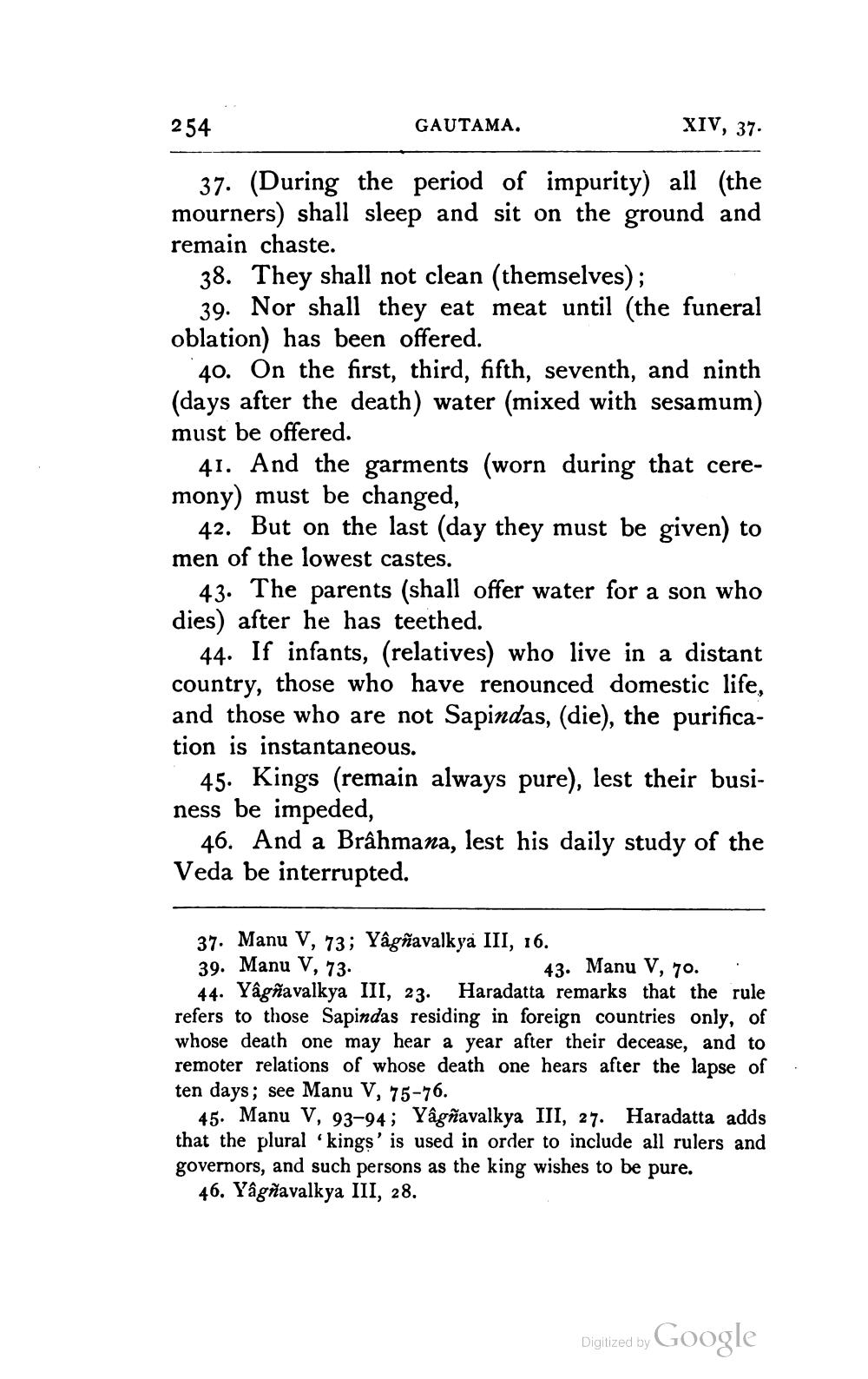________________
XIV, 37.
37. (During the period of impurity) all (the mourners) shall sleep and sit on the ground and remain chaste.
254
GAUTAMA.
38. They shall not clean (themselves);
39. Nor shall they eat meat until (the funeral oblation) has been offered.
40. On the first, third, fifth, seventh, and ninth (days after the death) water (mixed with sesamum) must be offered.
41. And the garments (worn during that ceremony) must be changed,
42. But on the last (day they must be given) to men of the lowest castes.
43. The parents (shall offer water for a son who dies) after he has teethed.
44. If infants, (relatives) who live in a distant country, those who have renounced domestic life, and those who are not Sapindas, (die), the purification is instantaneous.
45. Kings (remain always pure), lest their business be impeded,
46. And a Brâhmana, lest his daily study of the Veda be interrupted.
37. Manu V, 73; Yâgñavalkya III, 16.
39. Manu V, 73.
43. Manu V, 70.
44. Yâgñavalkya III, 23. Haradatta remarks that the rule refers to those Sapindas residing in foreign countries only, of whose death one may hear a year after their decease, and to remoter relations of whose death one hears after the lapse of ten days; see Manu V, 75-76.
45. Manu V, 93-94; Yâgñavalkya III, 27. Haradatta adds that the plural 'kings' is used in order to include all rulers and governors, and such persons as the king wishes to be pure.
46. Yâgňavalkya III, 28.
Google
Digitized by




